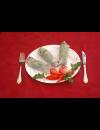Theory of Taijiquan and Health
May 20, 2024
Though the martial side of Tàijíquán is for strengthening the physical body and for defense, the scholarly side of Tàijíquán is for understanding human nature and comprehending the meaning of life. Only if (you) can cultivate these, both internally and externally, can you reach the Dào of balancing physical body and mind, and (also) the dual cultivation of human nature and physical body.
8 Min Read
Bring Your Body Into Balance
May 6, 2024
Slow, Deep breathing stimulates the main nerve of the parasympathetic nervous system called the vagus nerve, which in turn releases hormones and neurotransmitters that slow your heart rate, lower your blood pressure and generally brings your body into balance.
5 Min Read
Five Regulators of Taijiquan
April 8, 2024
What is Tàijíquán? It is a martial Qìgōng study. Its training procedures are not different from those of other general Qìgōng (practice) and must follow the (same training) theory. These training procedures are nothing else but: regulating the body, regulating the breathing, regulating the mind, regulating the Qì, and regulating the spirit—five regulatings.
7 Min Read
Necessity is the Mother of Invention - The Tiger Claw Set
March 18, 2024
The principle behind the Tiger Claw Set is simple: drop your attacker’s primary sensor system at the earliest opportunity before striking other various vulnerable targets until you can escape to safety. 5 Min. Read
An Introduction to Qi and Qigong
-
January 29, 2018
If you study the history of the human race, you will see that a large part of this history has been taken up with war, conquest, killing, and the struggle for power. We have tended to worship as heroes those who could conquer and rule other countries, and we have wrongly educated each new generation to glorify killing and slavery, and to worship power. There have been only relatively short periods when humankind has not been at war, when people could live their lives in peace and tranquility; but it was during these times that people created art, wrote poems, and sought ways to live longer and happier lives.
How Do You Learn Taijiquan?
-
January 21, 2018
Whether or not a person learns something depends upon his attitude and seriousness. First he must make a firm decision to learn it, and then he must have a strong will to fulfill his intention. He needs perseverance and patience to last to the end. Even if a person has all these virtues, his achievement might still be different from that of another person’s who has the same qualities and personality.
Common Sensations Experienced in Still Meditation
-
January 15, 2018
When you practice still meditation, regulating your body, breathing, and mind, you enter into deep meditation. Qi readjusts and balances itself, reaching even the smallest place in your body. You have feelings and visions, which cannot be experienced when you are not in meditation.
Introduction and Short History of Tai Chi Ball Qigong
-
January 9, 2018
Though the existence of taiji ball qigong has been common knowledge in both Chinese martial arts and laymen societies, its popularity has been limited due to the secrecy of the training techniques. Taiji ball qigong training, in each style, was kept secret and passed down only to trusted students.
Chinese or Western Medicine for Arthritis Sufferers?
-
October 30, 2017
Arthritis has afflicted humankind for as far back as we can trace. In all races, the young as well as the old have experienced the pain of arthritis. The condition can also have a disastrous effect on the sufferer’s peace of mind. Despite the great advances made in many fields of science, Western medicine today is still unable to cure many forms of arthritis.
The Importance of Yin and Yang in Physical Degeneration
-
October 10, 2017
We cannot stop our physical degeneration, but we can slow this degenerating process down by providing proper care to our body. According to Chinese qigong, to slow down our aging process, we must maintain the strength of our physical body (yang) and also learn how to increase the storage of inner energy in our qi body (yin).
How Do the Chinese Treat Back Pain?
-
September 27, 2017
Qigong is the study of qi. This means that qigong actually covers a very wide field of research and includes the study of the three general types of qi (heaven qi, earth qi, and human qi) and their interrelationships. However, because the Chinese have traditionally paid more attention to the study of human qi, which is concerned with health and longevity, the term “qigong” has often been misunderstood and misused to mean only the study of human qi.
Brain Aging and Brain Antiaging
-
September 20, 2017
Many holistic health practitioners use their knowledge and experience with the brain, mind, and awareness to guide patients to heal themselves in their healing work. In my practice with natural healing and natural medicine, I have seen many miracles; it is as if anything is possible if you put enough effort, intent, and energy into the work. The many cases of healing from cancer are especially important examples of the power of this mind-body approach.
The Way to Wise Living OR Common Sense Practice
-
July 24, 2017
Common sense means "common knowledge everyone should have." But unfortunately, many people today don't seem to have it. Why is this? We live in a dynamic world. Modern people are dynamic, and the flow of information is dynamic. We all assume we are smart and do things in a smart way. But we often lose our common sense to distraction, stress, illness or physical ailments, and emotional distress. Our focus is often on others—their successes, problems, and points of view. We often forget to pay attention to ourselves.
A Healthy Diet Can Help Prevent Depression
-
July 17, 2017
A healthy diet can play an important role in preventing and healing depression. A vegetarian or partial vegetarian diet is more effective in the healing process because of the avoidance of animal products.
Ten Tips for a Stress-Free Lifestyle
-
July 10, 2017
Depression is a major health hazard affecting many people's lives all around the world. Stress is a large part of depression. In the United States, about fifty-four million people experience some type of mental disorder each year. That is about one in five Americans. There are certain things we should pay attention to in order to have a stress-free lifestyle, which can greatly contribute to reducing or eliminating depression.
Taiji Practice Requirements
-
May 31, 2017
Although you can practice any way you want, the best way to practice taiji or qigong is in a group. It does not matter how big the group is; what does matter is if the group energy is together or in sync when everyone goes the same speed and same direction. In old Chinese tradition, the group energy is very often emphasized.
Celebrate World Tai Chi Qigong Day with Tai Chi—The Art of Fitness
-
April 24, 2017
The World Tai Chi Qigong Day will be held on April 29, 2017. The whole world celebrates this day by participating in tai chi and qigong practice in a natural setting at 10 a.m. in all different cities, from time zone to time zone. I will be <a href="http://www.taichihealing.org/">celebrating</a> at Bay Front Park, Sarasota, Florida (near Marina Jack.) This is a free event that I highly recommend to people of all ages and all different physical abilities. Come to try and to experience the World Qi Wave; to feel it, embrace it, and to use it to benefit our body, mind, and our spirit.
What is Taiji?
-
April 3, 2017
Taiji is an ancient Chinese exercise for health improvement, spiritual growth, disease prevention, healing assistance, and self-defense. It involves slow, circular movements; mental concentration; breath control; relaxation; and meditation.
Learning Training Sequences of Taijiquan
-
March 16, 2017
Every taiji master has his own sequence of training, emphasizing his methods and content. The following is a list of general training procedures according to my experience with three taiji masters and his teaching experience of more than thirty years.
About a Real Fight
-
February 20, 2017
Before you get into a fight, you must first ask yourself a few things: Is this fight necessary? What is my motivation in this fight? What are my chances of winning? What will the consequences be?
Footwork and Figure Eights with a Staff
-
January 18, 2017
Footwork is essential to hitting your opponent without getting hit yourself, which is really the whole point of staff fighting. The general rule on footwork is to keep your body weight balanced over a stable, but fluidly mobile base, staying light on the balls of your feet at all times.
Easy Training Equipment for Staff Fun
-
December 5, 2016
Here is your opportunity to become the "Lord of the Rings" (sorry, I just couldn't help myself!). Training rings allow you to develop accurate, penetrating thrusts as well as circular techniques used in manipulation of an opponent's weapon. They are useful for training both staff and spear.
The Importance of Posture in Taijiquan
-
November 29, 2016
Since taijiquan is an internal qigong martial style, correct posture is essential. Incorrect postures can cause many problems: a tight posture can stagnate the internal qi circulation, wrong postures may expose your vital points to attack, and floating shoulders and elbows will break the jing and reduce jing storage.
Combat with the Staff: The Moment of Truth
-
November 25, 2016
It is not unusual for sparring with the staff to feel awkward at first. There is a big difference between doing drills with a partner, and the chaos of combat against a non-compliant opponent who is trying his best to hit you. Stick with it.
























